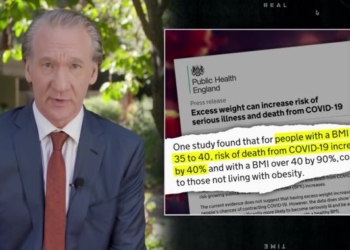Prevention
Self Care: The Most Important Thing You Can Do
Dr. Sue Morter talks about the importance of self-care. Self-care is something most of us seek, or desire to seek....
Read moreQuercetin and Vitamin C: Synergistic Therapy for COVID-19
Vitamin C and quercetin have synergistic effects that make them useful in the prevention and early at-home treatment of COVID-19....
Read moreWhat Habits Can You Build by Middle Age to Prevent Disease?
Harvard researchers say five healthy habits may increase the number of years you are disease-free; these are related to exercise,...
Read moreWhy Aren’t We Promoting Health to Combat COVID?
It's an unfortunate fact that health officials and pandemic response authorities, by and large, are completely ignoring the role a...
Read moreDr. Mercola Introduces His New Stop COVID Cold Website
StopCOVIDCold is now LIVE and ready for you to find out your COVID-19 risk and help spread the word about...
Read more5 Things You Should do Before It’s Too Late
According to the Center for Disease Control and Prevention (CDC), life expectancy in the United States is roughly 78.6 years. That...
Read moreFor the First Time, Terminally Ill Cancer Patients Allowed to Use Magic Mushrooms to Treat Depression
The government of Canada has granted permission to four terminally ill cancer patients to receive psilocybin therapy to treat their...
Read moreNEW Study Shows HYDR0XYCHL0R0QUlNE Cuts COVID Death Rate In Half
A full peer reviewed study proves that HYDR0X0YCHL0RQUlNE actually cuts the death rate in half. Watch this report by Ben...
Read moreHow to Handle the Mental Health Challenges Following Physical Health Problems
Everyone encounters a few health problems from time to time. While a full physical recovery should be at the top...
Read moreVaccine Tyranny – Will You Take Bill Gates’ Shot?
Ron Paul: They are rushing through a COVID vaccine at a blistering pace while granting immunity to big Pharma for...
Read moreWHO Admits: No Direct Evidence Masks Prevent Viral Infection
According to the World Health Organization’s June 5, 2020, guidance on face mask use, there’s no direct evidence that universal...
Read moreDaily Morning Pranayama Routine (Yoga Breathing Technique) Guided Exercise – SOMA Breath
This is a 17 minute daily Pranayama breathwork morning routine. This video is focused on teaching you a powerful yoga...
Read moreHow to Determine Which CBD Oil Potency Fits You
If you are on the lookout for CBD oil, here's how to know which CBD oil potency is right for...
Read moreEating Your Early Dinner Aids Weight Loss and Lowers Cancer Risk
Eating dinner at 2 p.m., or skipping supper altogether, and fasting until the next morning, combats weight gain by reducing...
Read more8 Inspiring Steps To Live a Healthier Life And Naturally Avoid Disease
In a world filled with toxins and more ways than ever to avoid exercise, the biggest health question becomes not...
Read more


















